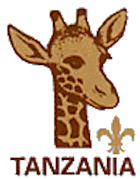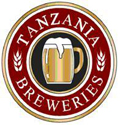
Dar es Salaam (Dar) is the former capital as well as the most populous city in Tanzania and a regionally important economic centre. Located on the Swahili coast, the city is one of the fastest growing cities in the world.
The African Great Lakes nation of Tanzania dates formally from 1964, when it was formed out of the union of the much larger mainland territory of Tanganyika and the coastal archipelago of Zanzibar. The former was a colony and part of German East Africa from the 1880s to 1919, when, under the League of Nations, it became a British mandate. It served as a military outpost during World War II, providing financial help, munitions, and soldiers. In 1947, Tanganyika became a United Nations Trust Territory under British administration, a status it kept until its independence in 1961. Zanzibar was settled as a trading hub, subsequently controlled by the Portuguese, the Sultanate of Oman, and then as a British protectorate by the end of the nineteenth century.
Saba Saba Day on July 7 celebrates the 1954 founding of the Tanzanian political party, TANU, the Tanganyika African National Union. Saba Saba means "seven seven" in Swahili, the national language of Tanzania. Saba Saba also may refer to the Dar es Salaam International Trade Fair. The fair is held every year on this date in Saba Saba grounds near Kurasini in Dar es Salaam.

The Tanzania Scouts Association (TSA) is the national Scouting organization of Tanzania. Scouting in Tanzania was founded in 1917, and became a member of the World Organisation of the Scout Movement (WOSM) in 1963. The coeducational association has 91,057 members as of 2010.
The Tanganyika Rifles was the sole regiment in the Tanganyikan army, from 1961 to 1964.
The Anglican Church of Tanzania (ACT) is a province of the Anglican Communion based in Dodoma. It consists of 28 dioceses headed by their respective bishops. It seceded from the Province of East Africa in 1970, which it shared with Kenya. The current Primate and Archbishop is Maimbo Mndolwa, enthroned on 20 May 2018.

Ujamaa was the concept that formed the basis of Julius Nyerere's social and economic development policies in Tanzania after it gained independence from Britain in 1961.
Those interested in the subject can monitor changes to the pages by clicking on Related changes in the sidebar. Articles related to Tanzania include:

Paul Lazaro Bomani was a Tanzanian politician and ambassador to the United States and Mexico.

Tanzania Ports Authority (TPA) is a parastatal public corporation acting under the aegis of the Ministry of Infrastructure Development, that has the responsibility "to manage and operate" the ocean ports and lake ports of the country of Tanzania. The Tanzania Ports Authrorty head quarters are located in Kurasini Dar es Salaam. It is a member of the Port Management Association of Eastern and Southern Africa.
Msondo Ngoma is an influential and long-lived Tanzanian muziki wa dansi band. Having been established in 1964, it is the oldest active dansi band in Tanzania.

India–Tanzania relations refers to the current and historical relations between India and Tanzania. India has a high commission in Dar es Salaam, Tanzania has an embassy in New Delhi, which is also accredited to Sri Lanka, Nepal, Bangladesh and Myanmar. Diplomatic relations are described as close, friendly and cooperative. 15,000 Indians visited Tanzania in 2007. In May 2011, Ex Prime Minister of India Manmohan Singh calls for strengthen cooperation with Tanzania. Trade between India and Tanzania amounted to 31 billion dollars in 2009–2010 and India is Tanzania's second-largest investor.
The following is a timeline of the history of the city of Dar es Salaam, Tanzania.

The Port of Dar es Salaam is the principal port serving Tanzania. The port is one of three ocean ports in the country and handles over 90% of the country's cargo traffic. According to the International Association of Ports and Harbors, it is the fourth largest port on the African continent's Indian Ocean coastline after Durban, Mombasa and Maputo. The port acts as a gateway for commerce and trade for Tanzania and numerous bordering landlocked states. For years the inefficiencies at the port has cost the regional economy millions of dollars; in 2012 the total global welfare loss caused by the inefficiencies of the port stood at US$1.8 billion for the Tanzanian economy and 830 million US dollars for the neighbouring countries.

Tanzania Breweries Limited, also referred to as TBL, is the oldest and largest brewing company in Tanzania.
Jeremiah Kasambala was one of the first ministers in the cabinet of Julius Nyerere after Tanganyika won independence from Britain on 9 December 1961. He rose to prominence when he was the head of the Rungwe African Cooperative Union in Rungwe District in the Southern Highlands Province.
Malangali Secondary School was one of the leading academic institutions in colonial Tanganyika. It retained its reputation for academic excellence after Tanganyika won independence from Britain in December 1961.

Charles Alfred "Peter" Bransgrove was an architect who mostly worked in Dar es Salaam but also in other parts of Tanganyika, Kenya and Uganda. Born in Kingston, Surrey, England on 7 April 1914 he was the fourth child to Sidney and Julie Bransgrove. He studied at the School of Architecture at the Regent Street Polytechnic in London and at the Royal Academy of Architecture, also in London. In 1947 he was employed as an architect for the Tanganyika Groundnut Scheme. When Peter's role in the scheme came to an end in 1948, he moved from Kongwa to Dar es Salaam and opened the first independent architectural practice in Dar es Salaam, C. A. Bransgrove & Partners. His design style was a climate-driven version of the Modernist movement.

The Tanzania Postal Bank Plc. is a licensed commercial bank in Tanzania and one has the roots of one of the oldest banking institutions in the country. The bank traces its roots to the Tanganyika Post office Savings Bank, which then formed an entirely independent entity from the Tanzania Posts Corporation. In 2017 the bank aimed to list itself on the Dar es Salaam Stock Exchange and officially transformed into a Public limited company.












